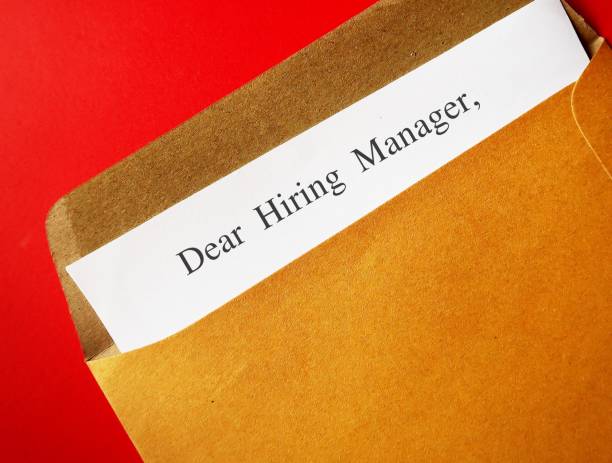In a competitive job search environment, your resume is often your ticket to the interview room. Well-designed, it concisely reflects your skills, experience, and achievements. But there is another important piece of paper that is often covered up next to your resume: a cover letter. While the cover letter is the star of the show, the cover letter plays a role a special one that supports and adds context, personality, and tone to your resume.

What is a Cover Letter?
Essentially, a cover letter is a standardized introduction that accompanies your resume. It is a one-page document that introduces you to potential candidates, highlights your relevant experiences, and explains why you are the best fit for the job. Think of it as your chance to make a memorable first impression while really showcasing your passion and skills.
Purpose of a Cover Letter
While a cover letter gives you an idea of how you work, a cover letter gives you a sense of who you are and gives a deeper insight into the candidate. Here are some of the main purposes of a cover letter.
Introduction: A cover letter allows you to introduce yourself beyond the points of your resume. You need to emphasize your passion for the job, your motivation for applying, and what sets you apart from other applicants.
Customization: Unlike a cover letter that goes all over the place, a cover letter should be customized for each job application. They allow you to demonstrate your understanding of the company and how your skills match their needs.
Demonstrating soft skills: While a resume focuses on hard skills and competencies, a resume that focuses on yourself is a great way to showcase your soft skills, such as communication, teamwork, and problem-solving. Illustrate these skills in action using anecdotes or examples.
Addressing red flags: If there are gaps in your resume or sections that might raise questions, the resume is the first place to address it. Whether it’s a job change, job gap, or lack of direct experience, use a cover letter to provide context and reassure the employer.
Demonstrate research: Employers appreciate candidates who take the time to research their company and understand the role they are applying for. A well-crafted cover letter demonstrates your knowledge of the company’s mission, values , and industry trends, and reinforces a genuine interest in your position.
Structure of a Cover Letter
While there is no one format for writing a narrative letter, it generally follows an established format:
Header: Include your contact information (name, address, phone number, email) at the top of the page, followed by date and employer information (name, title, company, address).
Salutation: If possible, please address the manager by name. If you don’t know the recipient’s name, use a generic greeting such as “Dear Hiring Manager.”
Introduction: Start with a strong opening paragraph that grabs the reader’s attention. Mention the specific position you are applying for and how you found out about it. Express your enthusiasm for the opportunity and briefly introduce yourself.
Paragraph Points: The body of your cover letter should consist of two to three paragraphs developing your qualifications and experience. Highlight relevant achievements, skills, and experience that demonstrate your suitability for the role. Be sure to draw connections between your background and the job requirements and highlight what you can bring to the table.
Closing Paragraph: In the final paragraph, restate your interest in the position and summarize why you are an ideal candidate. Express your enthusiasm for the opportunity to discuss your qualifications further at the interview. Conclude with a polite closing statement, such as “Thank you for considering my application” or “I look forward to the opportunity to contribute to [company name].”
Closing salutation: End the letter with a professional ending, such as “Sincerely” followed by your full name.
Tips for Writing an Effective Cover Letter
Crafting a compelling cover letter requires attention to detail and a strategic approach. Here are some tips to help you create an effective cover letter:
Tailor it to the job: Tailor your cover letter for each job application and focus on the specific requirements and qualifications listed in the job posting. This shows that you have taken the time to understand the role and how your background relates to it.
Be brief and relevant: Keep your cover letter short and to the point, don’t aim for more than one page. Highlight the most relevant experience and qualifications that demonstrate your suitability for the position.
Show your personality: While maintaining a professional tone, let your personality shine through in your cover letter. Avoid using overly formal language and instead aim for a conversational tone that reflects your genuine enthusiasm for the opportunity.
Quantify your achievements: Whenever possible, quantify your achievements to provide concrete evidence of your contributions in bullet points. Numbers and statistics can help quantify the impact you’ve had in previous roles and make your achievements more compelling.
Proofread Carefully: Before submitting your cover letter, proofread it carefully to check for any grammatical, spelling, or punctuation errors. Typos and grammatical errors can detract from your professionalism, so take the time to review your letter thoroughly.
Ask for feedback: Consider asking a trusted friend, mentor, or career advisor to review your cover letter before you send it. Fresh eyes can help catch any missed mistakes or provide valuable feedback to strengthen your message.
While the resume serves as the cornerstone of your job application, the cover letter provides the narrative context that brings your qualifications to life. This is your opportunity to showcase your personality, enthusiasm, and suitability for the role in a personal way. By following the tips in this article and creating a tailored cover letter for each job application, you can increase your chances of standing out to potential employers and landing an interview. Remember that a well-written cover letter can be the key to opening up new career opportunities and taking your professional journey to the next level.
